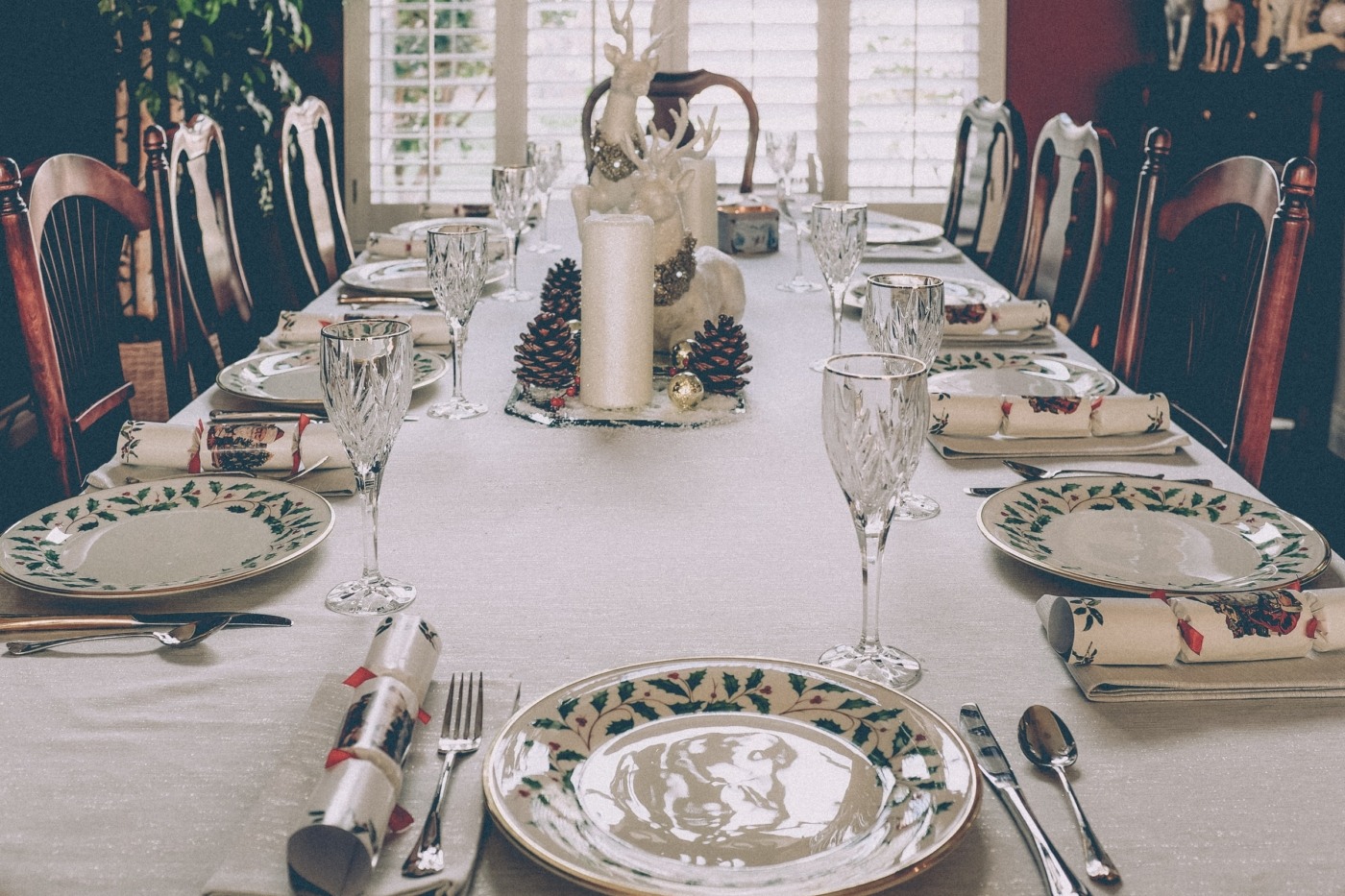A step-by-step guide to a sustainable Christmas dinner
Christmas is just around the corner which means that last-minute presents are being bought, trees are being decorated and festive dinners are being arranged. This may also be the time when you start wondering whether Santa will have deemed you naughty or nice. But have no fear, for with this guide to the perfect sustainable Christmas dinner you can secure your place in Santa’s good books and make the planet happy too. Here are some tips on how to stay eco-savvy this Christmas (without being too much of a Scrooge).
A merry Christmas doesn’t have to mean a meaty Christmas
When you think of the central element of a typical Christmas dinner, the first thing that springs to mind for many is a turkey. However, with UN experts now making it clear that high consumption of meat and dairy produce in the West is fuelling global warming, perhaps this is the year to opt for a vegetarian or vegan Christmas feast. The good news is that there are more affordable festive veggie alternatives than ever before. You could try some Quorn fillets as a close substitute for turkey and replace those pigs in blankets with some veggie cocktail sausages! Or maybe you’re bored of the typical meat or meat-substitute centred dinner and could try a nut roast or vegetarian pie instead?
The good news is that there are more affordable festive veggie alternatives than ever before.
The impact of animal agriculture on the climate can be devastating and this is especially true at Christmas when consumption sky-rockets. Research by Dr Harwatt, working with Humane Society International UK, found that a typical turkey roast for six, with roast potatoes cooked in goose fat, pigs in blankets, meat stuffing and meat gravy emits 23.5 kg CO2e, the impact of which is equivalent to driving 78.5 miles in an average UK petrol car. However, if cutting out meat entirely feels like a sacrifice you don’t want to make, you could instead commit to simply reducing your meat consumption on Christmas Day. Even very small changes can add up to make a significant impact.
Vegetables: Keep it local, keep it seasonal
Unfortunately, unlike Santa, we haven’t yet mastered travelling the world via reindeer and sleigh, which means that the transportation of our food still contributes massively to our carbon footprint. So, when the vegetable options for Christmas Day seem endless it might help to limit your choices to those that can be bought locally and are in season. This should make your Christmas food shop cheaper and easier for you – and will also have a positive impact on the planet. Plenty of traditional Christmas vegetables are in season at this time of year, including sprouts, carrots, parsnips, kale, swede and beetroot, so it’s likely that your festive favourites are among them.
All I Want For Christmas Is You (to reduce your food waste)
Did you know that over 4 million Christmas dinner’s worth of food are thrown away in the UK each year? I think we’re all guilty of over-buying at Christmas – especially when we try to convince ourselves that we like brussels sprouts, only to throw them out when we realise they are, in fact, truly inedible. One obvious way of reducing food waste is to buy less; however, if you still end up with too much food at your dinner table then why not save the leftovers for a lovely Boxing Day sandwich? Or mash those spare potatoes, sprouts and swedes together to make some bubble and squeak? Be as creative as possible with all those luscious leftovers and make some meals on Boxing Day and the days after that you could really only concoct at this time of the year.
Being mindful of your packaging
Post-Christmas dinner sweets can be very tempting but the sweet wrappers that end up getting thrown away aren’t so nice to think about. That’s why it might be a good idea to go for Christmas chocolates and sweets that aren’t individually wrapped in plastic. There is also now a wide range of eco-friendly or even reusable Christmas crackers that can make your dinner more sustainable before it’s even begun. You could even make some yourself – this way you can include gifts inside that you’d actually want, rather than ones you are likely to throw away.
A climate-conscious Christmas
While Christmas is often seen as a time for indulgence, perhaps the best gift we can all be giving this year is to the planet by being sensible about what we consume. Having a sustainable Christmas dinner may not solve all the world’s problems or bring about that system change we so desperately need. However, in the fight against climate change it will be governmental and intergovernmental action in combination with ethical consumption on an individual level that will make all the difference. A sustainable Christmas can be just as magical, and with 2010-2019 being the hottest decade on record, maybe now is really the time to start switching things up.

Comments